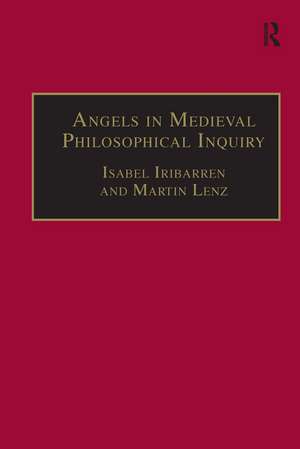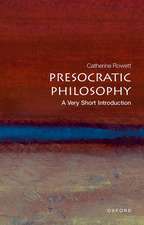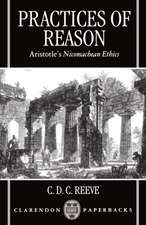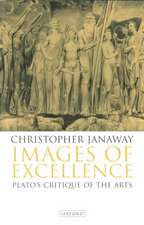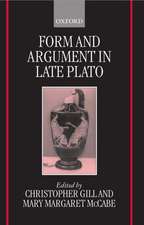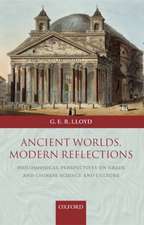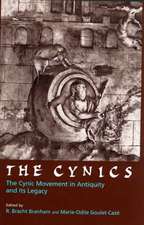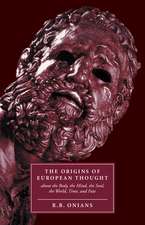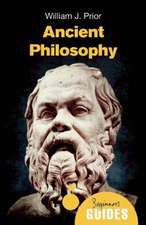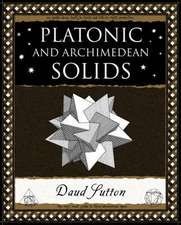Angels in Medieval Philosophical Inquiry: Their Function and Significance
Autor Martin Lenz Editat de Isabel Iribarrenen Limba Engleză Hardback – 13 feb 2008
| Toate formatele și edițiile | Preț | Express |
|---|---|---|
| Paperback (1) | 489.26 lei 43-57 zile | |
| Taylor & Francis – 9 sep 2016 | 489.26 lei 43-57 zile | |
| Hardback (1) | 1109.18 lei 43-57 zile | |
| Taylor & Francis – 13 feb 2008 | 1109.18 lei 43-57 zile |
Preț: 1109.18 lei
Preț vechi: 1352.65 lei
-18% Nou
Puncte Express: 1664
Preț estimativ în valută:
212.31€ • 230.69$ • 178.45£
212.31€ • 230.69$ • 178.45£
Carte tipărită la comandă
Livrare economică 21 aprilie-05 mai
Preluare comenzi: 021 569.72.76
Specificații
ISBN-13: 9780754658030
ISBN-10: 0754658031
Pagini: 256
Dimensiuni: 156 x 234 x 23 mm
Greutate: 0.45 kg
Ediția:1
Editura: Taylor & Francis
Colecția Routledge
Locul publicării:Oxford, United Kingdom
ISBN-10: 0754658031
Pagini: 256
Dimensiuni: 156 x 234 x 23 mm
Greutate: 0.45 kg
Ediția:1
Editura: Taylor & Francis
Colecția Routledge
Locul publicării:Oxford, United Kingdom
Notă biografică
Isabel Iribarren is Lecturer in Medieval History and Theology at Strasbourg University, France and Martin Lenz, is Research Associate at the Humboldt-University, Germany
Recenzii
’Sometimes one finds a treasure hidden in a stockpile of literature. Angels in Medieval Philosophical Inquiry is such a treasure.’ Bijdragen, International Journal in Philosophy and Theology
Cuprins
Introduction The Role of Angels in Medieval Philosophical Inquiry, Isabel Iribarren, Martin Lenz; Part I Angels as Exemplars of World Order; Chapter 1 The Hierarchies in the Writings of Alan of Lille, William of Auvergne and St Bonaventure, David Luscombe; Chapter 2 Deplatonising the Celestial Hierarchy: Peter John Olivi’s Interpretation of the Pseudo-Dionysius, Sylvain Piron; Chapter 3 Angelic Individuality and the Possibility of a Better World: Durandus of St Pourçain’s Criticism of Thomas Aquinas, Isabel Iribarren; Part II Angelic Location; Chapter 4 Abelard on Angels, John Marenbon; Chapter 5 The Condemnations of 1277 and Henry of Ghent on Angelic Location, Richard Cross; Chapter 6 Angels, Space and Place: The Location of Separate Substances according to John Duns Scotus, Tiziana Suárez-Nani1I am particularly grateful to Isabel Iribarren, who, with much competence, precision and patience translated into English the French version of this text.; Chapter 7 Late Medieval Debates on the Location of Angels after the Condemnation of 1277, Henrik Wels; Part III Angelic Cognition and Language; Chapter 8 The Language of Angels: On the Subjectivity and Intersubjectivity of Pure Spirits, Theo Kobusch1I would like to thank Thomas Dewender and Jörn Müller for the co-operative translation of my text.; Chapter 9 Thought Experiments: The Methodological Function of Angels in Late Medieval Epistemology, Dominik Perler; Chapter 10 Why Can’t Angels Think Properly? Ockham against Chatton and Aquinas, Martin Lenz; Part IV Demonology; Chapter 11 Demons as Psychological Abstractions, Alexander Murray; Part V Angels in the Renaissance and The Early Modern Period; Chapter 12 Medieval, Renaissance, and Reformation Angels: A Comparison, Stephan Meier-Oeser; Chapter 13 On Angelic Bodies: Some Philosophical Discussions in the Seventeenth Century, Anja Hallacker;
Descriere
This collection of essays is a significant scholarly contribution to angelology. The unifying theme is that of the role of angels in philosophical inquiry, where each contribution represents a case study in which the angelic model is seen to motivate developments in specific areas and periods of medieval philosophical thought.
